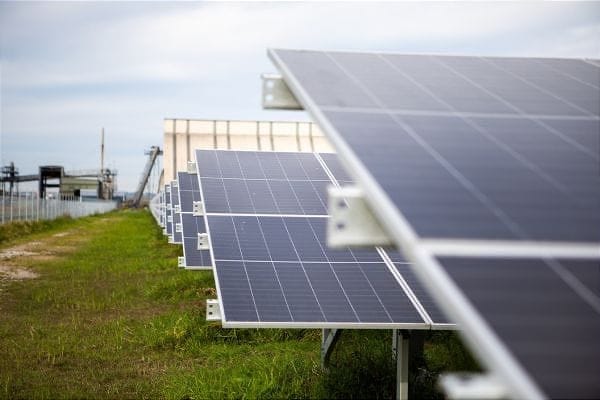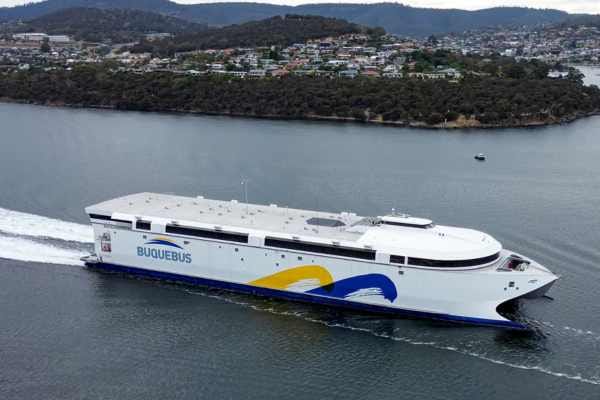Oiling the wheels of industry
From palm oil to ship fuel, these innovators are on a mission to clean up oil’s reputation.

From the food we eat to the fuels that power transport and the cosmetics on our shelves, oils are essential ingredients in many industries.
But their environmental toll, from deforestation and carbon emissions, is becoming increasingly hard to justify.
A new generation of Australian businesses are responding by developing smarter, more sustainable ways to produce and use oils with big implications for food, energy, and the planet. Here’s how three of them are reshaping the future.
Seed funding for sustainable oil
A group of high-profile backers have joined a Sydney-based startup in its mission to displace the need for unsustainable palm oil.
Sydney-based startup Levur has raised $1.2 million in pre-seed funding to accelerate the development of its nature-identical, lab-grown oils for use in cosmetics and food.
The funding round comes just months after Levur won first place and $100,000 in KPMG’s Nature Positive Challenge, which aims to support businesses tackling major environmental challenges.
The round was led by CSIRO’s Main Sequence (via the Synbio 10x accelerator program) and GrainCorp Ventures, with additional backing from SparkLabs Cultiv8 and the UNSW Founders program.
“This funding will enable Levur to develop and produce samples of palm oil derivatives”
Levur's mission is to curb the environmental damage – including deforestation, biodiversity loss and disruption of local communities’ economic and social stability – caused by excessive palm oil production.
Levur’s technology employs yeast to produce fats that mimic palm oil. By leveraging yeast’s natural fermentation processes, in a method similar to brewing beer, it says its solution is not only scalable but cost-effective.
The startup, which currently operates out of Macquarie University, was founded in 2023 by Joanne Barber and Tom Collier, a synthetic biologist and Levur’s CEO who has spent over a decade engineering yeast.
Collier’s mission began in 2012 when he discovered the devastating effects of palm oil production on orangutan habitats during a trip to Borneo.
Levur was a 2024 SparkLabs Cultiv8 alumni and has partnered with GrainCorp on developing sustainable ingredient solutions such as the palm oil derivative OPO to secure long-term supply and consistent quality.
“This funding will enable Levur to develop and produce samples of palm oil derivatives, such as OPO (for infant formula) and MCT (used in cosmetics), through precision fermentation,” the startup said on social media.
Levur also said it planned to raise another round of capital later this year to build its team, fast-track pilot projects with strategic partners, and commercialise its sustainable alternatives to palm oil and derivatives – a market it estimates is worth around US$75 billion.
A cleaner fuel sets sail
Another emerging area where oils are boosting industrial sustainability is in marine transport, where recycled cooking oils are stepping in.
Last month saw the launch of Australia's first commercial cruise ship biofuels trial. On April 5, Royal Caribbean cruise liner Celebrity Edge departed Sydney powered by the biofuel known as B20, supplied by marine fuel supplier Viva Energy in collaboration with Polaris Marine.
“This trial is a crucial step towards establishing lower carbon marine fuels in Australia”
B20 combines 80% marine distillate and 20% locally sourced B100, which is derived primarily from Australian used cooking oil. It is manufactured by local supplier Just Biodiesel and carries International Sustainability and Carbon Certification (ISCC+) accreditation.
“This trial is a crucial step towards establishing lower carbon marine fuels in Australia, and we are delighted to partner with Royal Caribbean Group to make this happen,” Viva Energy General Manager Specialities, Marine & Defence Richard Xin said.
Royal Caribbean has also been trialling biofuel on cruise ships in other parts of the world, including in Hong Kong earlier this year and in Europe in 2023.
Though sustainable fuel remains in its infancy – limited in supply and costly – cruise ships continue to rank among the travel industry's most significant polluters, highlighting a vast opportunity for cleaner innovation.
In a more sustainable cruising concept, luxury cruise operator Ponant has received a green light for a sail-powered ship concept with the 186.2-metre vessel expected to be completed by 2030.
Feeding the future with alt-fat
Cost is also crucial to success in the sustainable ingredients space, and a recent breakthrough was announced by Canberra startup Nourish Ingredients.
Alternative proteins often demand a fraction of the land and water required by conventional meat production. Nourish Ingredients uses precision fermentation to create an animal-free fat ingredient derived from nature called Tastilux.
The company recently announced the ingredient's ability to enhance flavour and texture in very small volumes, making it a highly cost-effective option.
“For plant-based foods to truly scale, they must deliver authentic taste without inflating the price tag”
Following a commercial production run with its Chinese manufacturing partner, Cabio Biotech – which it says produced enough to meet 170,000 tonnes of end-product – Nourish announced it was the first alt-fat company to achieve commercial-scale validation with a low cost of production.
“We’ve been told sustainable alternatives always cost more, but we believe that’s unnecessary and counterproductive,” the company says.
“For plant-based foods to truly scale, they must deliver authentic taste without inflating the price tag. We create specialised fats that deliver massive flavour at just 1% inclusion.”
Nourish Ingredients is now applying for regulatory approval in Australia, Singapore, the EU and the US, among other places.





